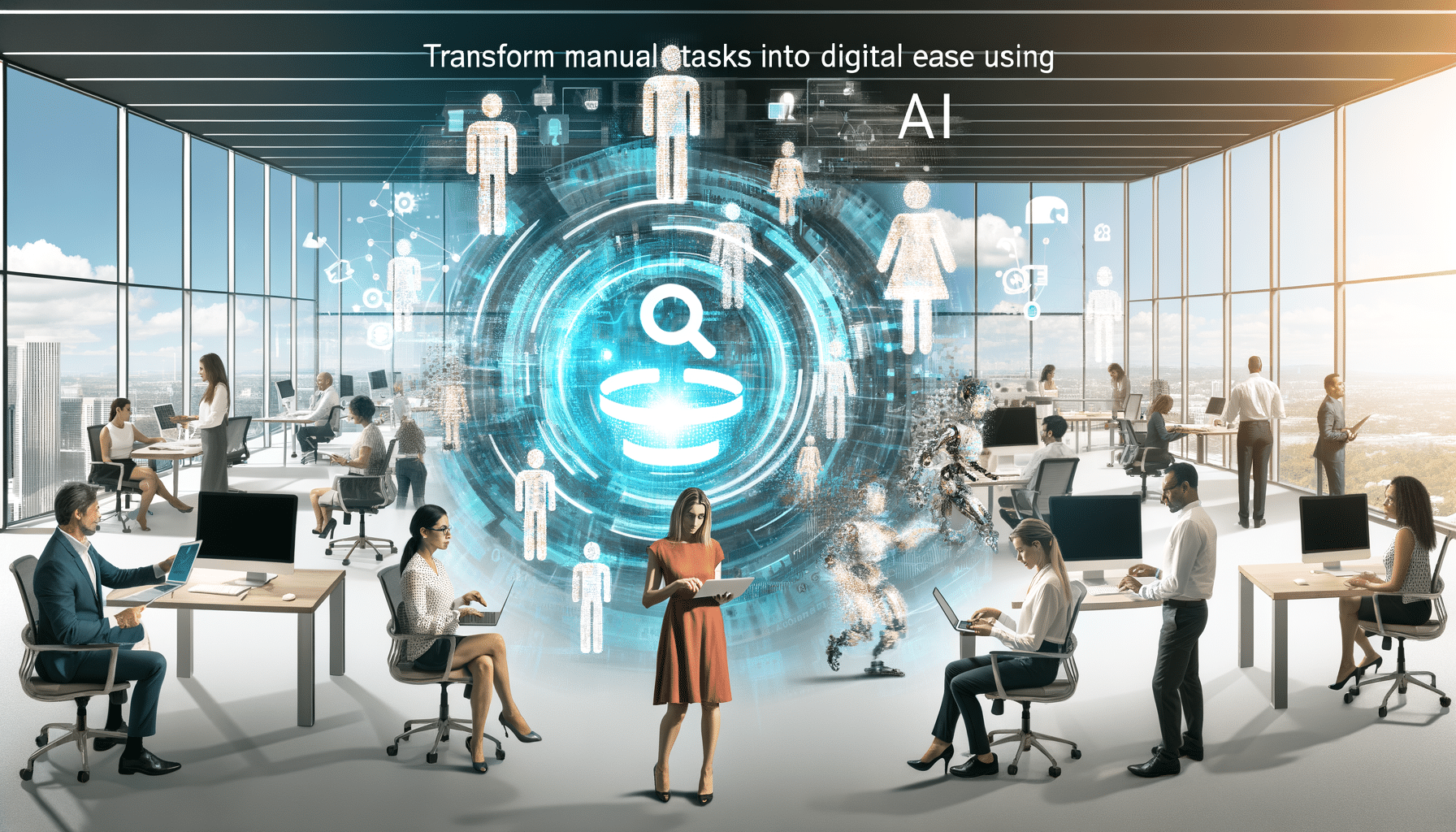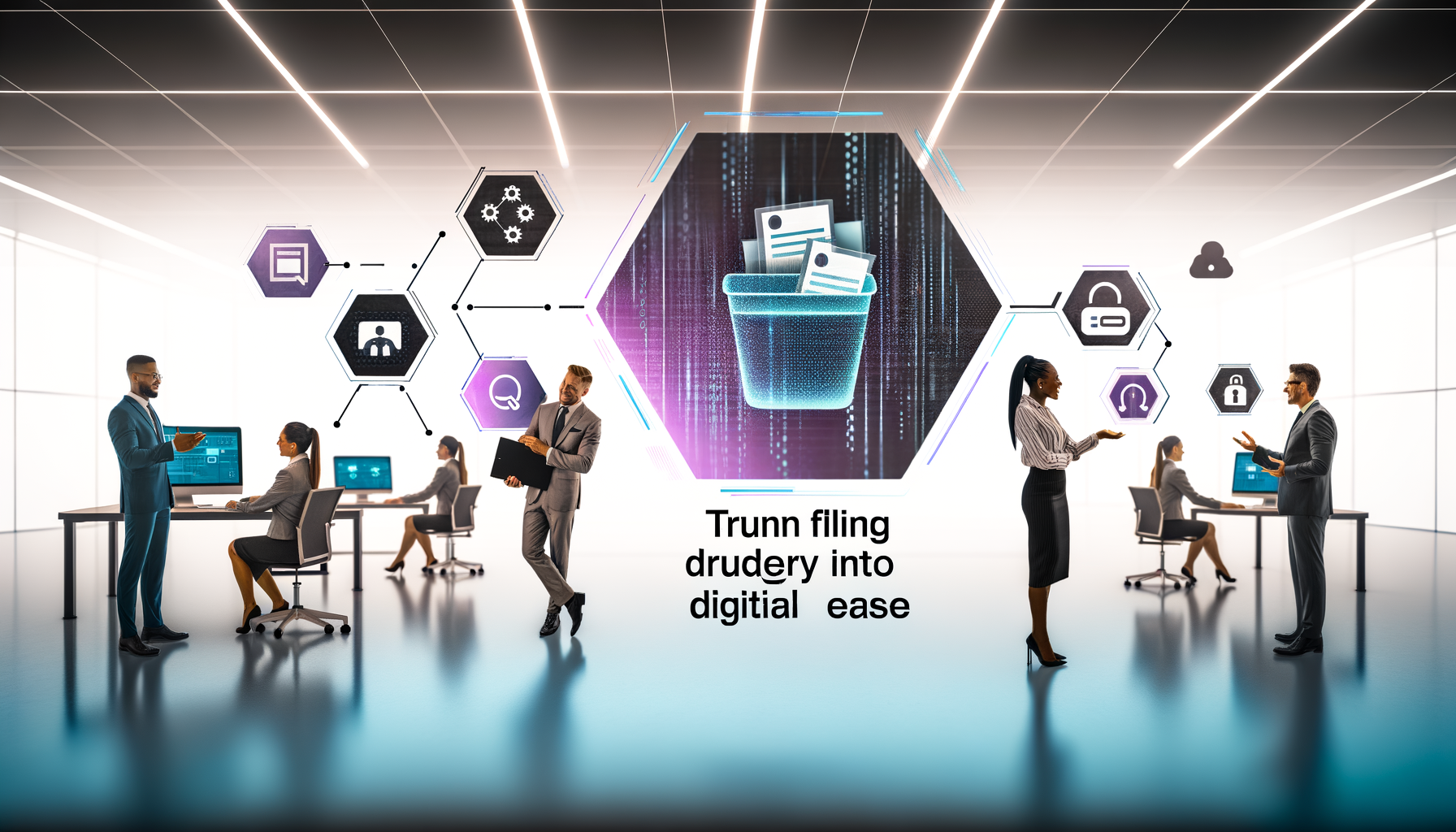- Digital Transformation
- August 2, 2024
Transitioning to Paperless Governance: A Guide for Public Sector Leaders

In today’s rapidly evolving digital landscape, paperless governance is no longer just a forward-thinking concept—it has become an imperative. Embracing digital transformation in the public sector promises increased efficiency, robust security, and enhanced citizen engagement. Yet, transitioning from traditional, paper-based systems to digital platforms can be daunting. As someone who has witnessed firsthand the seismic shifts in record management, I’ve discovered that this transition, while challenging, holds immense potential for public sector leaders willing to embrace change.
Understanding Paperless Governance
At its core, paperless governance involves replacing paper-based processes with electronic ones to manage governmental documentations and communications. It includes digital workflows, electronic archives, and secure data-sharing platforms. The move towards a digital ecosystem helps streamline operations, minimize errors, and improve service delivery for citizens.
But it’s not just about replacing file cabinets with cloud storage. It’s a paradigm shift that can redefine governance by making data more accessible, secure, and actionable. Paperless governance is the stepping stone towards smart cities and digital citizenship.
Benefits of Transitioning to Paperless Governance
Transitioning to paperless governance can offer numerous benefits, both tangible and intangible:
- Increased Efficiency: Automated processes reduce administrative overhead, accelerate service delivery, and free up resources for more strategic endeavors.
- Cost Savings: Reducing paper usage and storage leads to substantial cost savings in printing, mailing, and office space.
- Improved Compliance: Digital records facilitate adherence to compliance regulations, by allowing easy tracking, auditing, and management of data.
- Environmental Impact: Reducing paper consumption contributes to sustainability goals and showcases a commitment to environmental stewardship.
- Enhanced Accessibility: Making information accessible online allows citizens to interact with government services anytime and anywhere, improving transparency and service satisfaction.
Key Challenges in Implementing Paperless Governance
While the benefits are compelling, public sector leaders must be prepared to navigate several challenges:
- Cultural Resistance: Resistance to change is common in any organization. Employees accustomed to paper-based processes may find it difficult to adapt to digital workflows.
- Data Security: Transitioning to digital platforms necessitates robust cybersecurity measures to protect sensitive information against data breaches.
- Initial Costs: Although digital systems yield long-term savings, the initial setup can be costly, encompassing new software, infrastructure, training, and support.
- Technical Expertise: A lack of technical expertise among staff can stall the implementation of digital systems, making training and support critical to the transition process.
Strategies for a Successful Transition
Having explored the challenges, how can public sector leaders effectively move toward paperless governance?
1. Establish a Clear Vision and Roadmap
Define the objectives and key performance indicators (KPIs) for the transition. Engage stakeholders from various departments early in the planning process to align goals and expectations. A well-articulated roadmap will guide the transition and drive commitment.
2. Invest in Technology and Partnerships
Invest in scalable and secure technologies, such as AI-driven record management systems like RecordsKeeper.AI, to automate and secure recordkeeping processes. Collaborate with technology partners who understand the nuances of public sector requirements and can provide customized solutions.
3. Foster a Culture of Change
Cultivate an organizational culture that embraces change and innovation. Conduct workshops and training sessions to equip employees with the skills and confidence to use digital tools effectively. A culture receptive to change is crucial for any transition.
4. Prioritize Data Security and Compliance
Ensure that your digital transition complies with industry standards such as GDPR and HIPAA. Implement industry best practices for data encryption, authentication, and access control to guarantee the integrity and confidentiality of digital records.
5. Monitor and Adjust
Continuously monitor the transition’s progress and be prepared to make necessary adjustments. Regularly collect feedback from employees and citizens to refine processes and enhance the overall user experience.
Conclusion
While the journey to paperless governance poses its set of challenges, the rewards are transformative. It’s about positioning the public sector at the forefront of digital innovation, where efficiency, security, and transparency define every action. As a steward of change, I’ve embraced the challenge to innovate within RecordsKeeper.AI. Now, public sector leaders like you have the opportunity to revolutionize governance, improving services delivered to citizens and promoting a sustainable future.
Transitioning to paperless governance is within reach, and it begins with taking that first step towards embracing digital transformation. Join me in this journey of modernizing records management, and together, let’s shape the future of transparent and efficient governance.
Toshendra Sharma is the visionary founder and CEO of RecordsKeeper.AI, spearheading the fusion of AI and blockchain to redefine enterprise record management. With a groundbreaking approach to solving complex business challenges, Toshendra combines deep expertise in blockchain and artificial intelligence with an acute understanding of enterprise compliance and security needs.
Related Posts

Transform Manual Tasks into Digital Ease Using RecordsKeeper.AI
How AI automates manual documentation tasks.
- November 16, 2024

Turn Filing Drudgery into Digital Ease With RecordsKeeper.AI
How AI transforms manual filing into digital efficiency.
- November 16, 2024
Archives
- January 2025
- December 2024
- November 2024
- October 2024
- September 2024
- August 2024
- July 2024
- June 2024
- May 2024
- April 2024
- March 2024
- February 2024
- January 2024
- December 2023
- November 2023
- October 2023
- September 2023
- August 2023
- July 2023
- June 2023
- May 2023
- April 2023
- March 2023
- February 2023
- January 2023
- December 2022
- November 2022
- October 2022
- September 2022
Want to get more content like this?
Signup to directly get this type of content to your inbox!!
Latest Post
Document Control for Equipment Maintenance
- January 20, 2025
Managing Records for Multiple Clients
- January 19, 2025
Handling Conference Documentation
- January 18, 2025
Setting Up Department Record Reviews
- January 17, 2025





